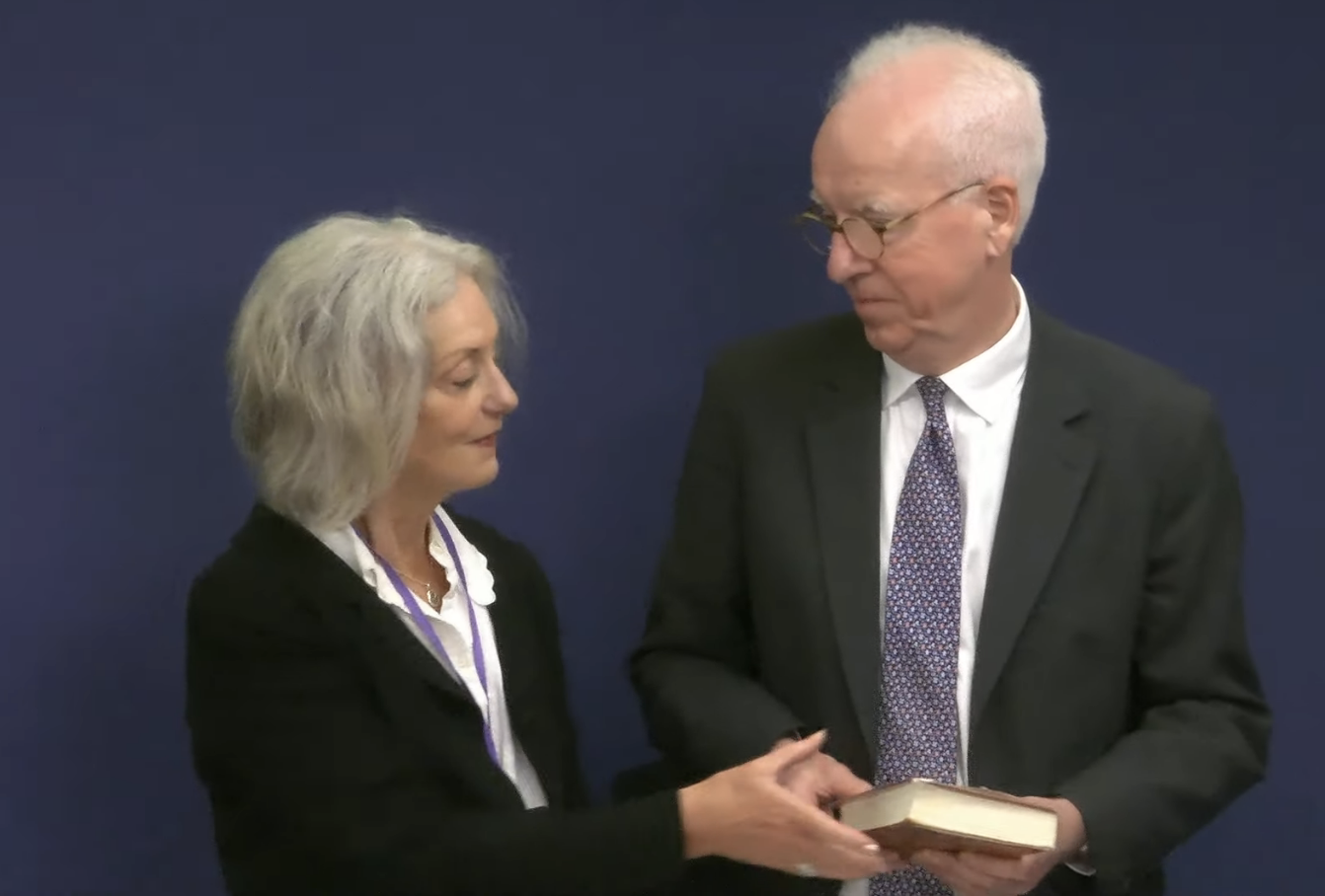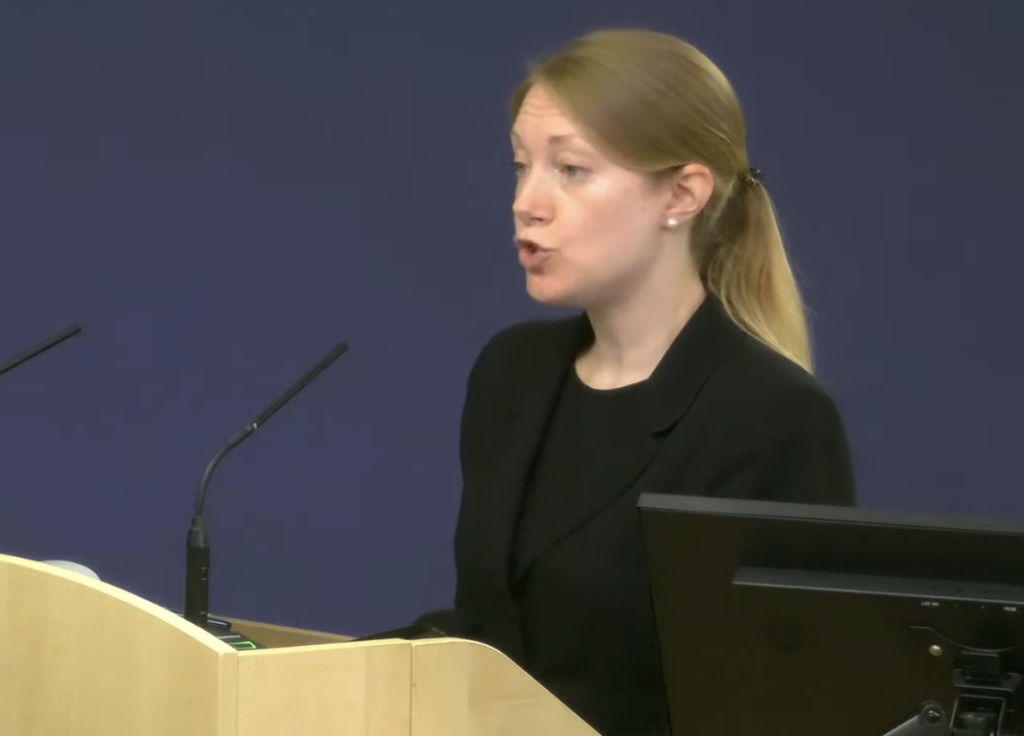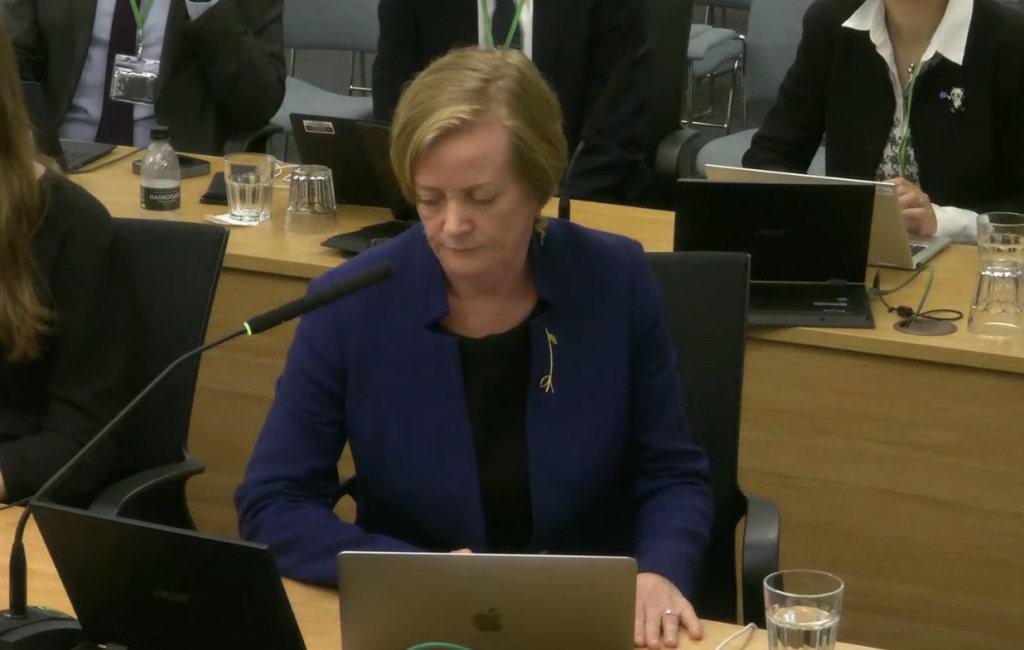
Mark Russell has, in one form or another, been involved in the corporate governance of the Post Office from 2004 to today. He joined the government’s Shareholder Executive (ShEx) in 2004, became its CEO and then in 2014, when ShEx was absorbed into UK Government Investments (UKGI) he became CEO of that body until 2019 when he moved into a Senior Adviser and consultancy role.
Russell was ultimately responsible for examining the business risks facing the government-owned Post Office, and by his own admission today, both he and his organisation completely missed the Horizon scandal until it was far too late.
How? ShEx seemed to put a lot of faith in its regular risk-assessment summaries rendered via traffic light analyses (TLAs) and “heat maps” which supposedly alerted the organisation to problems. These documents were designed, in Russell’s curious choice of word for “socialisation” – that is sharing and discussion amongst his team.
They were certainly colourful. Here is a sexy ShEx heat map from February 2014.

Russell was a big fan.
“I remember when we introduced this, looking down our floor, we were all in one space, and seeing many of the screens with this on, and I thought, well, we’re doing our job here because people are engaging with this process… The aim of this was something that was very active. It wasn’t a passive process.”
Everyone was looking at the pretty colours, but no one was doing anything, because the data was useless. Or as Russell had it:
“I would maintain this was a good system, but it didn’t capture one of our biggest risks.”
The operation was a success, but the patient died.
Spell it out
At the same time ShEx was developing its internal infographic function, there was some hard information being produced in black and white. On 19 February 2014, ShEx’s Risk and Assurance Committee held a meeting. Russell attended to hear from Richard Callard, ShEx’s man on the Post Office Board. Much of the meeting (minuted over several paragraphs) was spent discussing how useless Paula Vennells was and how to deal with her, but matters soon turned to the risk register.
“The committee asked what Project Sparrow was”, noted the meeting minutes. Project Sparrow was the name the Post Office had given to its Complaint and Mediation Scheme for Subpostmasters which had been announced in August 2013. A member of Callard’s presentation team, Tim McInnes, stepped forward. His explantation is recorded in the minutes as follows:
“This is with regard to a financial system [Horizon] that is used by Subpostmasters, some of whom have received criminal convictions for misuse. However the Subpostmasters are suggesting that the actual system was at fault. All the POL [Post Office Ltd] investigations so far have shown that the system is working correctly. However, the risk is the that if this system were to show up as defective then potentially the criminal convictions could be overturned and compensation from POL sought.”

At this point everyone present at the meeting seems to have shrugged their shoulders. The meeting concluded with five action points, three of which involved trying to improve or better measure Vennells’ competence, none of which related to Project Sparrow.
Emma Price, barrister for the Inquiry asked:
“Did you or anyone else at this meeting suggest at this stage that Project Sparrow and the issues raised there in response to the query should be raised specifically with the Shareholder Executive board?”
“I don’t think we did”, Russell replied.
“Can you help with why?” pushed Price.
“Well I think because we considered – and weren’t we wrong – we didn’t consider this to be a significant risk. I think it’s as simple as that.”
Putting aside the bizarre fact no-one on that ShEx committee had come across the Subpostmasters’ campaign for justice, (first reported five years previously in Computer Weekly, repeated by both Private Eye and the BBC and raised several times in Parliament), the Shareholder Executive Risk Committee had just been told that there was a project underway which might lead to miscarriages of justice being identified, with convictions potentially being overturned and all the financial implications which flow from that, and the corporate response was to do… nothing?!
Leftover relish
This crucial point was raised with Russell by Flora Page, barrister for several Subpostmasters. Page read out McInnes’ summary of Project Sparrow again. She invited Russell to agree it was “incisive”, lacking the usual “flummery”.
“It focuses very very tightly on the criminal convictions”, noted Page, repeating McInnes’ words: “If the system proves to be at fault then they may be overturned.”
Page told Russell that the risk being expressed “is that the organisation that you’re overseeing may have wrongfully convicted its trusted business partners and sent them to jail”.

Russell agreed it did. Page asked the obvious question about the committee’s lack of curiosity: “Why is nobody wondering about the possibility that postmasters have been sent to prison wrongly?”
“I think the answer to that is we had no idea of the scale of what was going on”, Russell replied.
“It doesn’t matter the scale, if one person has gone to prison wrongly”, responded Page, “that is a miscarriage of justice.”
“Yes, I completely agree with that, I completely agree with that”, said Russell, hurriedly. “I agree just one person being convicted wrongly is a matter of serious concern and I’d acknowledge that. I can’t remember the discussion, I was there, but that in itself I completely agree. We should have jumped on that.”
It remains all the more mystifying why no one did. At one point Emma Price asked directly:
“Did you ever feel a sense from within the Shareholder Executive, or from the [Business] department that it was too difficult to contemplate sub-postmasters being right, the consequences of that being too catastrophic?”
“Emphatically not!” returned Russell “Emphatically not. I’d go so far as to say I’d have relished, we would have relished uncovering this.”
But they blew their multiple chances to do so.
I don’t want to alarm you, but as well as the Post Office, UKGI is the body tasked with identifying and managing risk at the Nuclear Decommissioning Authority, the UK’s Atomic Weapons Establishment and Sizewell C. Let’s hope they spot the next one coming down the tubes.
For a real-time gallop through the day and its documents, do have a look at the live tweets.
The journalism on this blog is crowdfunded. If you would like to join the “secret email” newsletter, please consider making a one-off donation. The money is used to keep the contents of this website free. You will receive irregular, but informative email updates about the Post Office Horizon IT scandal.

Leave a Reply